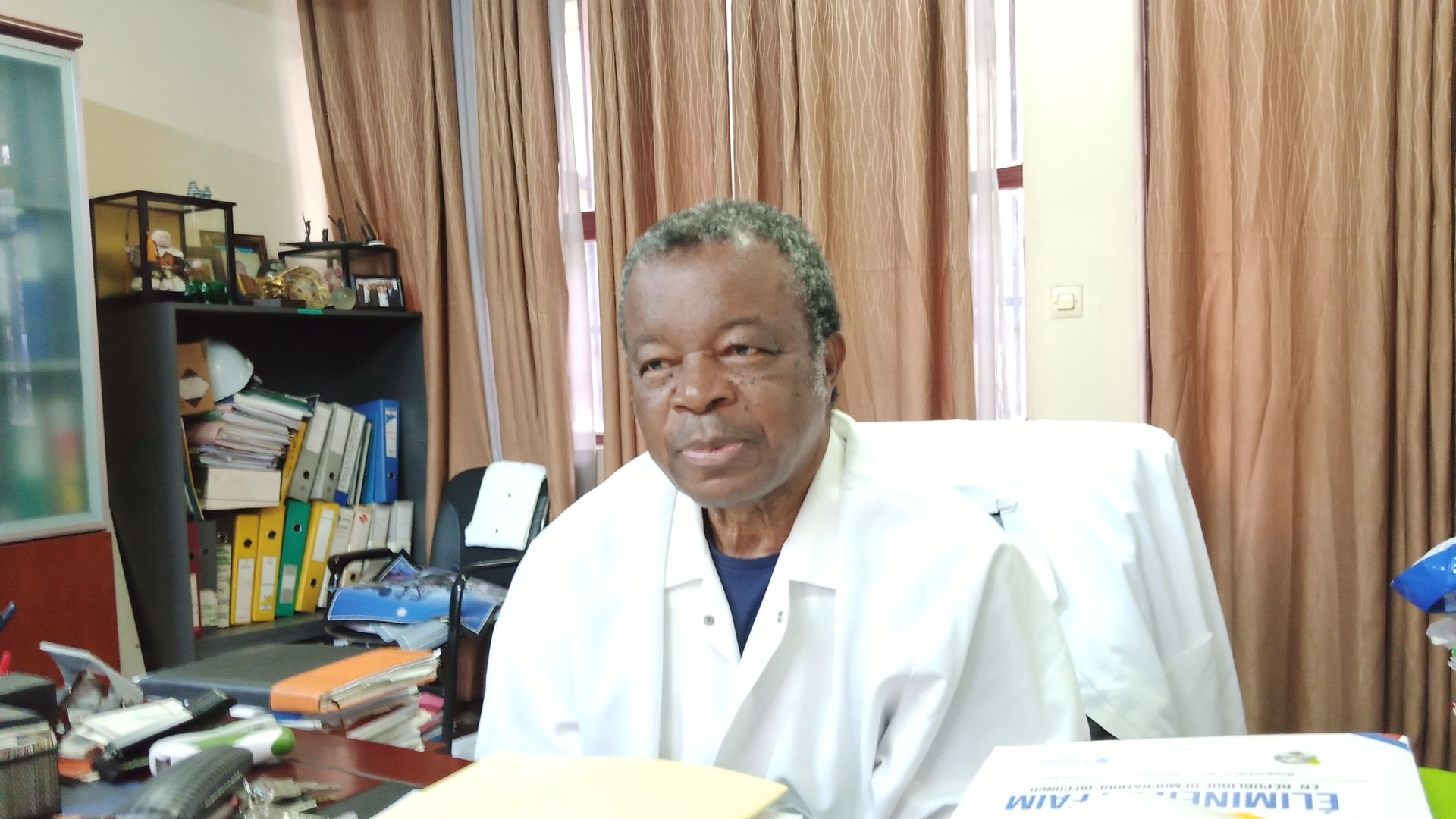Interview: Congolese health leader on the challenges of stamping out Ebola
Add Axios as your preferred source to
see more of our stories on Google.

Jean-Jacques Muyembe during his phone interview with Axios in December 2019. Photo: Garyn De Bondt/ project coordinator for PATH
Microbiologist Jean-Jacques Muyembe, current head of the Ebola outbreak efforts in the Democratic Republic of the Congo, says community engagement combined with increased security and new medicines will halt the spread of the deadly virus.
Why it matters: Ebola is currently experiencing its second-largest outbreak. Named one of Nature's top 10 scientists of 2019, Muyembe has played a key role in each of the 10 Ebola outbreaks.
He tells Axios:
"It's [my] greatest joy to have seen the emergence of the disease and now years later to be able to treat the disease. ... I have seen all the steps of the evolution of the virus and the knowledge [we have gained.] But, we still don't know everything we need to know."
Background: Muyembe discussed the challenges facing the DRC's battle with Ebola with Axios in an interview translated by Trad Hatton, director in the DRC for the nonprofit global public health organization PATH, which arranged the interview.
- Muyembe describes how he was one of the first scientists to have contact with a Congolese patient with Ebola in 1976 at a Catholic hospital in the village of Yambuku.
- Appearing at first to be typhoid or yellow fever, the infection showed enough different characteristics that Muyembe ended up bringing an ill nun to the capital city, Kinshasha, for further testing and treatment.
- Muyembe took blood and liver samples that were sent to the Institute of Tropical Medicine in Belgium, where microbiologist Peter Piot was able to use an electronic microscope to see the uniquely shaped and new virus, later named Ebola.
- Muyembe's key role in the discovery of the deadly disease has only recently been acclaimed.
What's happening now: Significant advances have been made in understanding how to combat the virus, although the unique problems of this outbreak have so far stymied efforts to stamp it out completely, Muyembe says.
- Muyembe was appointed in July by DRC President Félix Tshisekedi to head the Ebola outbreak efforts.
- Since then, he's overseen the DRC's approval of a second vaccine (the U.S. FDA recently approved the first vaccine by Merck), the global announcement that two of the four treatments they had tested were successful, and a renewed focus on DRC-based research.
Yes, but: Cases continue spreading, including particularly worrisome community deaths that occur outside of medically secure areas. Continued bursts of violence in the community that sometimes target health teams — a persistent problem — are also very concerning, Muyembe says.
- As of Dec. 27, the DRC's Ministry of Health reports there have been 3,373 total confirmed and suspected cases, with 2,231 deaths (confirmed and probable) and 1,104 people healed.
- This particular Ebola outbreak is different from the prior nine in that it's centered in a conflict zone with more than 100 armed militia groups, mobile refugees, and a community that's distrustful of both governmental and foreign organizations. "This population is already traumatized" from conflict, Muyembe says.
Between the lines: "The first step has been to really understand the sociocultural factors of the disease," Muyembe says. For example, the Ministry of Health continues to educate citizens on the dangers of traditional burials, where dead bodies — which remain infectious for a period of time — are washed and prayed over, encouraging safe practices instead.
- "Another step is understanding the role of the hospitals themselves in amplification of the disease," especially if they have poor hygienic procedures, he adds.
- Improving the speed and accuracy of Ebola diagnostics has been key as well, Muyembe says, particularly as malaria and Ebola often begin with similar symptoms. Officials have established a network of 11 field laboratories to diagnose Ebola more quickly and plan to build more.
- Technical advances in vaccines, treatments and genome sequencing offer more precise solutions that "bring confidence" that the outbreak can be solved.
What's next: While continuing to work on stamping out this outbreak, Muyembe, who in addition is director of the National Institute of Biomedical Research, says he's also focusing research on discovering what animal or insect is the vector of the disease.
- The virus is believed to be animal-borne and Muyembe says they've taken samples from 10,000 bats. In these samples, scientists have found the Marburg virus, which is from the same filovirus family as Ebola, but not Ebola "so far."
Go deeper:
